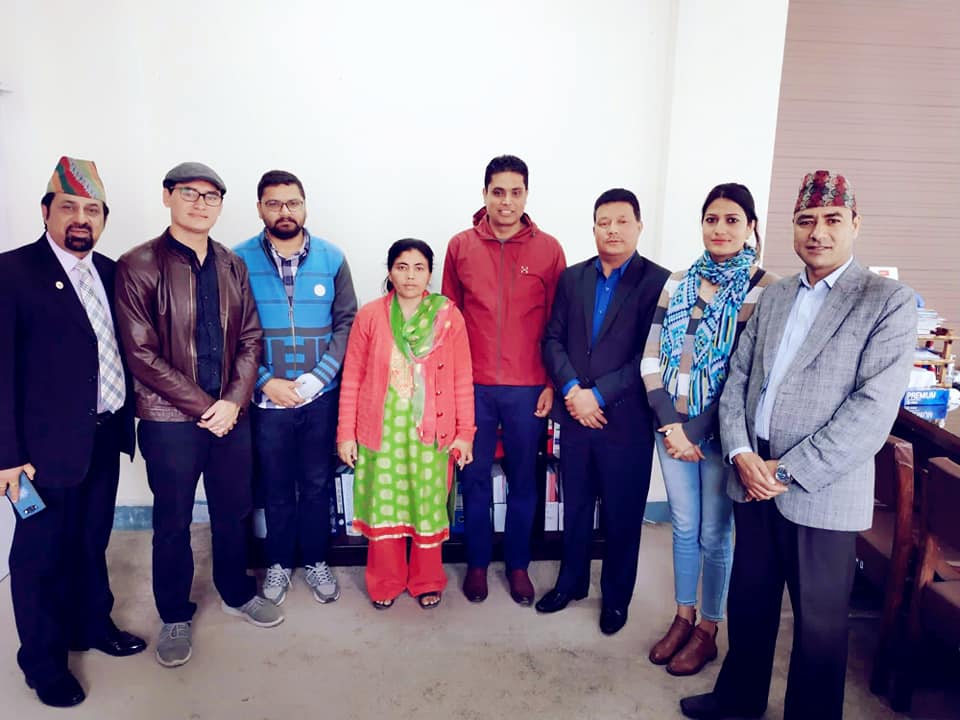
National Roundtable Outcome Submission by C&D Dialogue Members to the National Planning Commission

Climate and Development Dialogue (C&D Dialogue)
Kathmandu, Nepal
We, the undersigned group of Civil Society Organizations (CSOs) working actively in the field of climate change, environment conservation, gender and women’s empowerment, and development sectors highly appreciate the National Planning Commission’s wise and timely initiative of incorporating climate change section in the country’s 15th Five Year Plan (2076/77 – 2080/81). On 23 January 2019, policy makers, planners, experts and practitioners from over 60 organizations participated in a National Roundtable Discussion on Climate Change and Development held in Kathmandu to discuss and share their respective experience, learning and ideas for a way forward. The learning and ideas emanating from in-depth discussion have been captured in the form of the round-table discussion proceedings.
As the following recommendations generated as an outcome of the roundtable discussion are aimed at contributing to achieving the goal and objectives of the five year plan, we hereby request the National Planning Commission to sincerely consider them.
Climate Change Adaptation and Resilience Building
- It is crucial to conduct a nationwide detailed vulnerability assessment to understand the risks posed by climate change to different ecological zones of Nepal.
- It is an opportune moment to integrate climate change in the planning processes at the Federal, Provincial and Local Government levels so as to achieve sustainable development. For this purpose development of clear policy and institutional frameworks is urgently called for.
- Climate change issues cannot be dealt with in isolation, rather they should be integrated into the overall development planning in conformity with the Sustainable Development Goals and the Sendai Framework for Disaster Risk Reduction.
- It is imperative to promote a mechanism of tracking successful and good practices in the areas of climate change adaptation and mitigation for replication and for scaling up adaptation and mitigation actions.
Climate Change and Gender
- Climate change impacts are not gender neutral. It is of utmost importance to ensure meaningful participation of women in climate change related policy and decision-making, and design and implementation of adaptation and mitigation programme and projects at all levels. Development and implementation of clear guidelines and action plan for this purpose is highly crucial.
- As women are the best custodians of natural resources the Government must prioritize and invest in building women’s leadership in management of natural resources. Design and implementation of natural resources management programme and projects with women at their centre would go a long way towards harnessing women’s leadership potential, utilizing their experience and knowledge in this area and addressing their specific needs in view of the disproportionate impact of climate change they are experiencing.
- It is equally crucial to support women farmers with less labour-intensive innovations and technologies that help reduce the burden of women and girls’ unpaid care work and contribute to addressing climate change issues.
Climate Change Financing
- The Government of Nepal should prioritize accessing international climate finance from all available sources including the Green Climate Fund to fund programmes and projects prioritized in the development plan. Nepal must prioritize and strengthen national institutions to access these available resources through national entities.
- The Government should ensure transparency and accountability in mobilizing climate finance at national and sub-national levels. It is important to further improve National Climate Change Budget Code and expand similar coding measures to Provincial and Local Government levels.
- ‘Environment and Disaster’ hardly find space in the Local Government’s priority list. But the current acceleration of environment degradation and the growing frequency and magnitude of disasters in the country calls for a mechanism that places equal weight on environment and disaster as in other five priority sectors in Local Government plans, programmes and budgets.
- National Planning Commission’s leadership role is called for in coordinating with concerned line ministries for integration of climate change into the planning process as well as for allocation and prioritization of dedicated climate finance at all levels. One of the most effective ways of doing this is establishment of separate climate related Fund at all levels of Government.
- Adequate budgetary allocation for translating policies and plans regarding climate change, natural resource management and disaster risk management into real actions on the ground with women at every stage of the policies and plans is the key to bringing good results.
Common Issues
- The five year plan must encourage development and implementation of a national plan for promoting green economy and renewable energy to curb the use of fossil fuel and thereby combat climate change.
- It must also develop appropriate mechanism of promoting climate justice and facilitate effective engagement in international climate change process. At the same time, enhancement of the capacity of multiple stakeholders in the country i.e. Government, civil society and the private sector is the need of the day.
Signatories
- Action Aid Nepal
- DanChurch Aid Nepal
- Didi Bahini
- HELVETAS Nepal
- Himalayan Grassroots Women’s Resources Management Association (HiMAWANTI)
- Karnali Integrated Rural Development and Research Centre (KIRDARC)
- Practical Action Nepal
- Prakriti Resources Centre
- Tewa – Philanthropy for Equitable Justice and Peace
- The Mountain Institute
